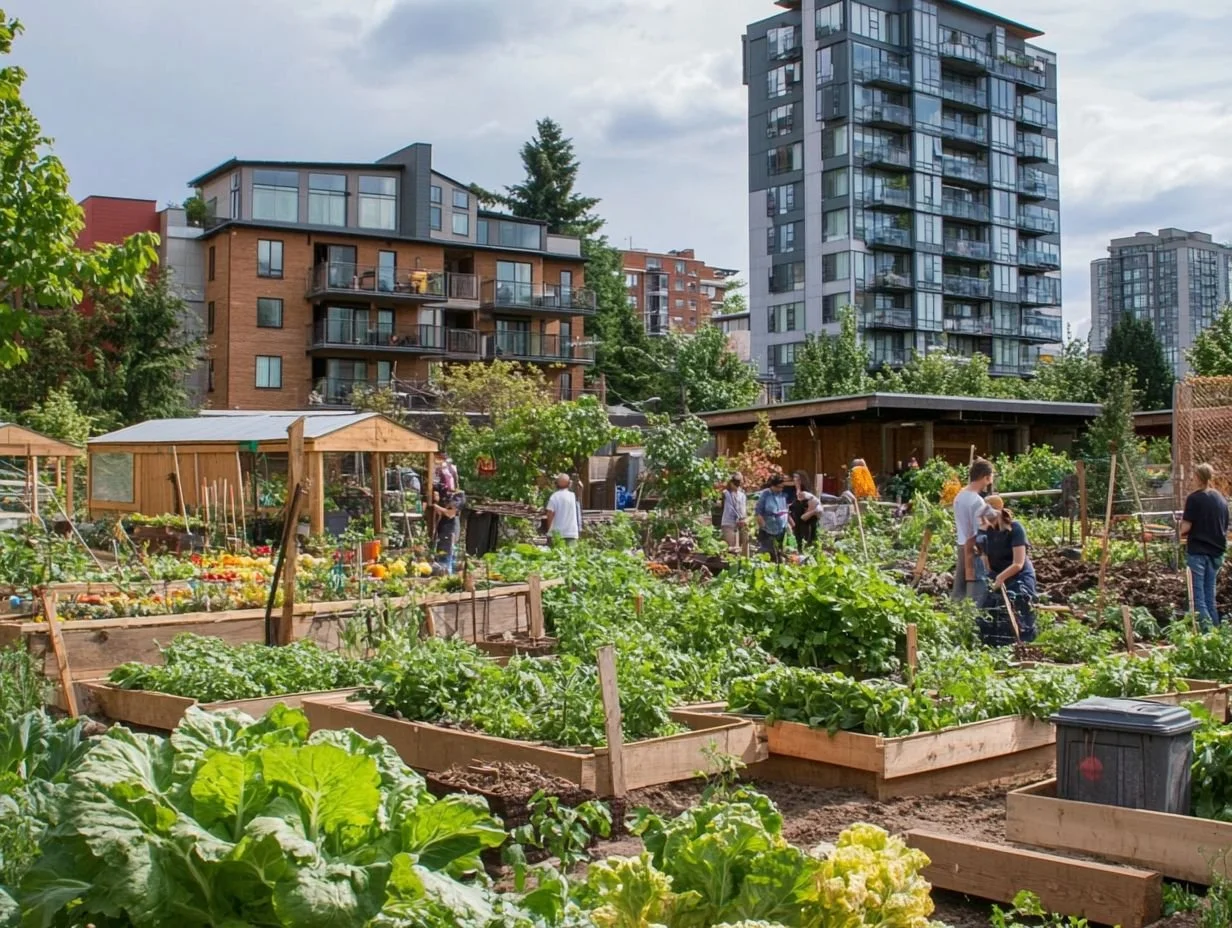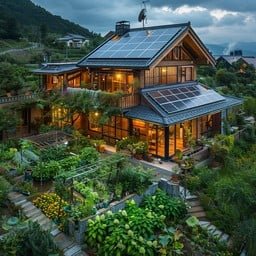
Vision
Whether we are striving for transformation in our own lives, in our communities or the world at large, it is essential that we create and focus upon a vision of the ideal we’re aiming for. This must be a clear and compelling vision that will both inspire us and function as a compass to guide us in our progress.
It is key that the vision be both ambitious and more or less achievable. If we know deep down that our desired outcomes are unrealistic, it will be effectively impossible for us to sustain the hope and motivation needed to realize them. That said, our vision may well evolve over time as we become more powerful, more resilient, resourced and confident in our abilities.
When it comes to envisioning a better world, free of inequity, violence and oppression, a world in which humans exist in harmony with nature, all of our needs are met, our traumas healed and the environmental crisis simply a chapter in our history books, we need to bear in mind that even if this world does ever come to be, it will most certainly not be in our lifetimes, nor in our children or grandchildren’s lifetimes.
That ideal world is, for our intents and purposes, a fantasy. But it is also a powerful reminder of what we hold most dearly as human animals, and what the majority of us would like to strive for, if we truly believed it were possible. Utopia, sadly, will always be a fantasy. There will always be power-hungry, unscrupulous and sociopathic people among us, and our best laid plans will continue to be upended by the vicissitudes of life, whatever form our societies may take. The economy will continue its eternal turbulence, and we will continue to suffer natural disasters and disease.
The fantasy is valuable, in that it brings us home to our spirits, to our deepest dreams and longings. But again, remember that to achieve real change, we must also have a vision that is more realistic, that does not so fundamentally conflict with the uncomfortable realities of the world we currently inhabit. After all, while we would like our descendants to inherit a far better world than the one we know now, I’m sure we would all like to see our own lot substantially improved while we’re still alive.
And so, I will focus on a vision relatively achievable within the next few generations. Keep in mind that this is written by an author whose background is in regenerative land-care, the mental health field and the arts, so my perspective will inform this vision, and I invite you to draw inspiration from it, but also to explore your own vision - consider where it differs, and where it aligns. We can learn a lot about ourselves from this kind of exercise.
My vision is heavily informed by the aspirational world of solarpunk and the more practical road-map that permaculture gives us towards a regenerative and humanistic future. For those who are unfamiliar, both of these frameworks are well worth studying and exploring. They can both provide boundless inspiration for our visions of a better future, as well as some of the resources needed to make progress towards them. I believe they complement each other very well, as each excels where the other falls short.
In any vision of the future we must both emphasize meeting the needs of all people as well as addressing all of the environmental and societal problems that we face. When people are unable to meet their needs by socially sanctioned means, they must inevitably resort to manipulation, crime, and other destructive measures. It is simply impossible to have healthy people without a healthy planet and a healthy planet without healthy people. It is a failing of therapeutic and social services that they ignore environmental and political factors in our lives, and a shortcoming of the environmental movement that it often neglects our human needs. This is why Soul and Soil emphasizes the integration of these pieces.
To be thoroughly meaningful, our vision must integrate all of the elements that make up human life on Earth. The ecological, the psychological, the emotional, the political, the economical. It must describe work and play, abundance and loss, power and fragility. That said, when it comes to taking action to build a better world, we will find we have more leverage in focusing on certain elements over others. We have to pick our battles and be strategic.
Another important note is that we cannot expect the whole world to change in a linear and consistent way. As the devastation of climate change, late-stage capitalism and political instability unfolds, some parts of the world will fare very badly and others will be relatively unscathed. If we want to meaningfully affect change, we must primarily focus on ourselves, our communities and local ecosystems. No one person or group of people can save the whole world, and it would waste our time and destroy us to try.
With these many caveats out of the way, what key elements can we identify for our vision? Let's start on the scale of the individual and expand outwards from there.
I'm guessing I speak for more than myself when I say that we long to live lives full of passion, purpose, creativity and connection (whether that be social, spiritual or otherwise). We want to be inspired and confident, with a robust sense of self-worth. We would like to be able to express ourselves fully without fear and to access flow without friction. We want to love and be loved securely, to belong in and be accepted by our communities.
We would like to be able to busy ourselves with work that aligns with our deepest passions and is valued by society, and then to rest and enjoy leisure abundantly without worrying about where our next paycheck will come from. We would like to live in artfully constructed homes and communities whose physical infrastructure is intrinsically welcoming, and to be surrounded by the thriving vitality of nature, a beautiful diversity of plants and animals who we know to be our neighbors and our broader family.
We would like to arrive on our deathbeds full of wonder and gratitude at the lives we've lived, without regret, and surrounded by the people we love. We would like to be celebrated and remembered with the utmost fondness by those we leave behind, who will pass down our stories as part of the greater human narrative.
On the level of community, the goals are broadly similar. How wonderful it would be to share our neighborhoods with congenial people who have similar values and a similar sense of purpose. To share spaces for abundant community gardens and to enjoy ample opportunities for open discussion, creativity and play with those around us. And at the same time, for those of us who are introverted and neurodivergent (myself included) to be accepted and valued exactly as we are, allowed our solitude, and welcome to engage as feels comfortable and fulfilling to us.
This kind of awareness and acceptance requires that we vastly augment our focus on social and emotional skills in the education system (and while we're at it, pay teachers way more). The education system that exists today serves solely to produce unimaginative and obedient workers, and offers children little in the way of resources to skillfully navigate the complexities of social and emotional life. One might say that it’s the responsibility of parents to teach these skills to children, but as we should all be aware, a great many parents also lack these skills and resources. Such is the curse of a cowardly and capitalistic culture mired in the muck of generational trauma. Other currently neglected areas to be emphasized in schools would include the political structures of our countries and communities, how to manage money, and the intricacies of health (including mental health) and nutrition.
I would imagine that the vast majority of us would like to have access to high quality universal healthcare, with short wait times and an abundance of medical professionals who are empowered to actually spend time and invest in relationships with their patients, deeply appreciating their complex circumstances rather than offering superficial remedies that rarely do any good. And, recognizing that Western medicine focuses predominantly on symptom management, we would prioritize complementary, evidence-based healing modalities that emphasize the prevention of illness and the maintenance of good health.
Returning to the topic of community gardens and nature, our towns and cities would feature vastly greater green areas, wooded parks, meadows allowed to grow wild with flowers that attract pollinators, trees lining every street and buildings with green roofs and garden terraces. The benefits of this kind of design are too numerous to mention here, but it merits mentioning that the best strategy we have for combating the heat island effect that afflicts cities more and more in the age of global warming is to bring more plants into cities. This makes a vast impact, and can mean the difference between life and death for vulnerable people.
Furthermore, many functions which are currently outsourced to major corporations would be performed to a greater extent within our communities, such as rainwater harvesting and grey water recycling, growing fresh and nutritious food, composting, the fabrication and repair of items such as clothing and furniture, practical skills education, and forms of entertainment such as music and theatre.
A great many of us would like to feel that we have a certain amount of political influence within our communities. This may mean the ability to contribute ideas and perspectives in town council meetings, or it may mean making more hands-on contributions to the creation of public spaces in some capacity.
As I move on to society at large, I must be transparent in stating that I have no expertise in economics, political science, or large-scale infrastructure projects. So the reader must bear in mind that my perspectives here on out may be less grounded in practical reality. Nevertheless, the perspectives of common people are ultimately what matters the most, so I feel justified in sharing my thoughts.
I doubt that within our lifetimes we will see any significant changes to our political and economic structures. It seems to me that within the next few generations, the best we might hope for is a peaceful transition towards decentralized democratic socialism. Communism is a lovely ideal, but human nature tends to get in the way, and I will be frank in saying that I don't believe it's truly achievable. But that being said, I firmly believe that in one way or another we must overcome the capitalist model if we are to survive as a species and not utterly trash the world we inhabit, rendering it inhospitable. Capitalism explicitly incentivizes greed and exploitation, and alienates the vast majority of people from the value that they produce in society. Furthermore, it alienates us from each other and even from ourselves, as it works us to the bone and promotes material consumption as the default way of dissociating from the discomfort of life. We are left with no time or energy to invest in ourselves or our communities when our worth as human beings is boiled down to the vulgar act of producing as much financial capital for the elites as humanly possible until we drop dead.
Democratic socialism empowers us to have agency over our work and roles in society, as well as providing us greater wealth and comfort through the even distribution of profits. This stands in stark contrast with the capitalist model, in which the vast majority of profits are funnelled upwards to CEOs, the holders of capital and shareholders, while the productive masses are left with barely enough to survive, if that.
Another essential aspect of the vision of an ideal society must be our systems for producing and distributing energy, given that our flourishing as a species in the modern sense depends on incredible quantities of energy. The finite fossil fuels that remain must be reserved for specific essential uses, such as the production of key medical equipment, until viable alternatives are established. Sooner or later we will run out of oil, and it is insane for us to be recklessly manufacturing everything out of plastic and burning petroleum in our cars, boats and airplanes. What we want is a diversity of energy sources, including solar, wind, nuclear (which is vastly safer now than it is ever been) and potentially others such as tidal and geothermal generation. Diversity provides us with security in the inevitable event of system failures from one source or another, and wind and solar are notoriously dependent on the weather, so the more inputs, the better, it would seem. The improvement of battery technology seems inevitable, however we must find ways of producing batteries that don't rely on such absurdly destructive and exploitative production methods as we have now.
It's virtually a meme at this point that tech entrepreneurs, in their vain efforts to come up with new and superior modes of transportation, keep reinventing the train, and calling it by different names. It is indisputably the optimal form of mass transportation, and it's unlikely that we will ever do better. We will likely always need some form of individual transportation, as there will always be some portion of the population that lives rurally, but we must do much better with managing the transportation of urban populations. Especially in North America, our infrastructure has been designed around cars, forces most of us to be dependent on cars, and this has created a hideous, dangerous and unwelcoming landscape that is alienating, depressing, and destructive both to the environment and the human spirit. The ideal vision does not entirely exclude cars (electric and perhaps hydrogen-powered) but it must focus instead on trains and bicycle-friendly infrastructure within cities.
Finally, if we are to persist in electing national governments, we must broaden our conception of democracy. Voting every few years is not nearly enough; we must continuously be prodding and holding our elected officials to account. We must establish greater channels of popular power to unseat these officials when they contradict the will of the people, and hold regular referendums for legislative decisions.
When it comes to artificial intelligence, I will concede that it has its uses, and that we are stuck with it for the foreseeable future, but I do not think it bodes well, and as I write this on the precipice of AI dominating our world, I would not be surprised if it proves to be our downfall as a species. That said, this is another area where I have no expertise, so I will say no more. I will conclude this segment by stating the obvious fact that our ideal vision of the world would be free of war, free of famine, of drought, and of disease. While this may be controversial, my ideal world would also be free of religion, which has been one of the foremost causes of war and suffering for as long as it has existed.
How We Get There
Now that I have described what I conceive as being an attainably utopian society (albeit perhaps not fully attainable within our current lifetimes), we have to discuss the more challenging matter of how to get there. Here again, there are a few caveats.
As noted above, the larger issues on a national or global scale are beyond the influence of most people - myself included. Except for those employed in the higher levels of politics, finance, technology and infrastructure, we are by and large better off directing our energy towards the spheres where we can make a tangible impact - that is, in our personal lives and our communities. This isn't to say that we should be inattentive to national or global concerns, nor that we should fail to vote and petition our leaders when possible, but we need to be realistic about what power we do possess. So, our focus will be on the personal and the local scale.
Furthermore, it bears repeating that no one person can be responsible for solving all of the world's problems. We all have more strengths and interests in certain areas than others, and while it's good to shore up our weak points, we are wise to lean into our natural proclivities - to swim with our internal currents rather than against them. Some people will be most comfortable focusing their energy towards one specific aim, whereas others will prefer a more varied approach, integrating or alternating between a few core interests. Each individual must feel out this balance for themselves, and be open to shifts of focus as they move through life and grow. What matters to us at twenty years old may not be what matters at fifty.
It's also important to note that community can take on different forms, and there are many ways we can take part in community. It is true that modern western society has swung too far towards the extreme of fetishizing individualism at the cost of social cohesion and community, but we must also be wary of veering excessively into authoritarian collectivism, a model which is equally unhealthy. We need the freedom to experience life and express ourselves as individuals, while also enjoying strong and mutually supportive bonds with the people around us.
In particular, people who are introverted, neurodivergent or highly sensitive may balk at the suggestion that living a better life means being highly engaged in social activity. For many, solitude is both the most comfortable default and a necessity for healthy functioning. And yet, for those who experience life in this way, we can easily lean too far into solitude, becoming dangerously isolated. It can be a challenging and perpetual task to find balance in this regard, but virtually all people have some amount of need for interpersonal relationships, to live a full and satisfying life. And as much as they may be dismissed by some, online relationships can be profoundly valuable, though they do lack some key elements of in-person connection, such as nervous system co-regulation and the powerful salve of physical touch.
All that being said, there are a great number of ways we can direct our attention and energy to improve our lives, as well as the vibrancy and resilience of our communities. Some examples include:
Growing/processing/preserving/distributing food
Reparative trades (clothing, electronics, furniture, etc)
Local economies and currencies, exchange and barter economies
Creating mutual aid networks
Rainwater harvesting, recycling grey water
Replacing wasteful grass lawns with gardens of edible and native plants
Keeping backyard chickens
Mental health & crisis work, safe/transition houses
Communal housing networks
Engagement in municipal and regional politics
Ecological restoration and conservation projects
Free/PWYC community health clinics and wellness classes
Cycling infrastructure projects
Car-sharing & transit assistance programs
Men's, women's, LGBT+ and other support/personal development groups
Community events (potlucks, shows, fundraisers)
Tool libraries, and other free resource libraries
Free/PWYC skill-building workshops (for automotive/bike repair, composting, herb & mushroom foraging, personal finance, etc)
Community beautification projects (painting murals, planting flowers in public spaces, etc)
There are many other examples we could list here, and these and others will be explored in much greater depth on the Soul and Soil YouTube channel and in the blog, but this is a good place to get started. And again, no individual person will be able to engage meaningfully in all of these pursuits, but should instead find what resonates most with them and how to get involved. This might mean trying out several different things before something really clicks, and there's nothing wrong with that. Indeed, a greater diversity of life experiences lends much depth and sophistication to whatever we eventually settle upon. Experimentation, losing interest and failing at a variety of different things are essential parts of our growth as human beings!
Implementing these kinds of initiatives within our communities requires the nurturing of a shared vision (to a certain degree), cooperation, coordination, compromise and conflict resolution between the people involved. These are skills that many of us didn’t learn growing up and must consciously cultivate as adults. They are not necessarily easy to develop, but they are absolutely within our grasp, especially when our collaboration serves a higher purpose such as what’s discussed here.
Depending on our locality, we may well run up against regressive municipal or regional bylaws, HOA or strata regulations which interfere with any number of the projects we aspire to undertake, such as keeping backyard chickens, growing vegetable gardens in place of grass lawns, and so on. Changing these policies can require prolonged pressure upon our elected representatives, and we may at certain points discover that we are best off finding ways to surreptitiously work around the rules or find creative alternative solutions when change is not forthcoming. It is also possible that civil unrest, broader sociopolitical forces or natural disasters may upend our efforts, and in these cases, we must prioritize safety and stability above all else, while bearing ever in mind our vision and hope for a better future. This kind of transformation occurs over the long-term, after all.
Turning our gaze inward, we are reminded that a better future means not only improving the conditions of our communities, but improving ourselves and our subjective experience of life. Personal struggles with trauma, depression, anxiety, self-doubt and self-loathing, addiction and instability can not only render our lives unbearable, but obscure our desire and ability to engage with community. How can we live purposeful lives when we don't even want to get out of bed in the morning? How can we take part in society when we have learned not to trust or enjoy the company of other people?
As with all significant problems, these are not easily solved (if it were easy, they'd already be solved!) But many of the same principles apply to our internal problems as those in the outside world; it is essential to recognize and accept our struggles before we can do anything about them. And for the most part, we can't solve major problems by ourselves. There is a lot that can be done on one's own, such as focused journalling, finding peace in nature and art, and using somatic strategies to grow comfortable in one's body, but even the smartest and most self-aware of us inevitably hit road-blocks in our healing and growth, places where we feel stuck and at a loss for ideas, places where our insights and motivations fail us. It's at times like these that we are wise to seek out support from others, whether they be friends, family members, therapists or coaches, to access fresh and novel perspectives that can shake us out of our rut. Therapists and coaches can be particularly useful, in that they can support us in a more objective way than our friends and family, who may be well-meaning, but whose biases and preconceptions about who we are can interfere with giving truly helpful insights.
In both personal and community healing, there is no absolute end-point. For those who care to put in the effort, healing and growth can continue for as long as we are alive. This should be a cause for celebration, as it means we have a potentially limitless capacity to improve our lot in life - within reasonable bounds. We are likely all familiar with the concept of "hitting rock bottom". In fact, there is no firm rock bottom until you're dead, and in the same way, there's no "rock top" that we can hit in our journey of self-improvement. Through mental, physical and spiritual development, and through cultivating healthier, more loving relationships and engaging in purposeful activity, our experience of life can just get better and better.
The same is true of our communities. If enough people collaborate over the long-term with the intention of building something beautiful and resilient, there's no limit to how far we can go, not just as individuals and communities, but as a species. We will always have differences of opinions and perspectives, and conflict will inevitably arise as long as we exist on this Earth, but we have the capacity to repair and learn from ruptures, and ultimately to emerge stronger and more centred in love on the other side.
This text will leave many questions unanswered and many complexities unaddressed, but this is precisely the objective of Soil and Soil: to support those who long for a better future in accessing the resources and establishing the conditions - both inner and outer - to bring that dream to fruition. In my experience, the world of environmental activism often neglects the inner experience of individuals, and conversely the mental health field tends to ignore broader systemic and environmental factors. This project represents my passion, which is to bridge the two worlds, to approach healing and growth in a truly holistic, creative and life-affirming way - which I believe will be the way of the future.
Care to join me?








